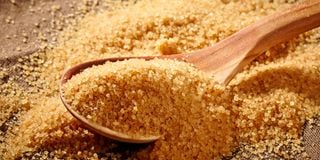Premium
Sugar prices set to rise on excise duty increase

The government has increased excise duty it charges on imported sugar.
The government has increased the excise duty it charges on imported sugar, setting the stage for a fresh jump in the prices of consignments of the commodity regularly shipped into the country to plug the annual deficit in local supply .
Tax Laws Amendment Act, 2024, which was recently signed into law by President William Ruto, has raised excise duty on imported sugar to 7.5 per cent up from five per cent.
This will be a blow to consumers, who had just started to enjoy lower prices after record prices in recent years.
According to official data from the Kenya National Bureau of Statistics (KNBS), sugar prices have fallen by an average of 27.4 per cent over the last year.
It shows that a kilogramme of sugar was selling at an average price of Sh158.23 last month, which is lower than Sh217.96 in November 2023.
Sugar has a wide range of uses, spanning household consumption to manufacturing of products such as pharmaceuticals. This, therefore, means that an increase in prices of the sweetener will also impact the price of an array of products.
Higher excise duty also comes just a month after the government introduced a four per cent Sugar Development Levy on the same imports.
The introduction of the sugar levy made through the Sugar Act, 2022 was assented to by President Ruto last month.
The sugar levy will be used to finance operations of the Kenya Sugar Board, and Kenya Sugar Research Institute (KSRI), price stabilisation for sugar growers, and infrastructure development in the sector.
The two taxes will be a headache for consumers especially because Kenya still heavily relies on sugar imports despite an increase in local sugar production this year. The country remains a net importer of sugar, mainly from the Common Market for Eastern and Southern Africa (Comesa), despite having the potential to produce and meet her domestic consumption and surplus for export.
Kenya relies 100 per cent on imports to meet its refined industrial white sugar requirements. Refined sugar imported from outside the Comesa region falls under a tightly regulated duty remission scheme as a raw material for manufacturing and is gazetted under the East Africa Customs Management Act (2004) and subjected to VAT.
According to data from the Kenya Sugar Board (KSB), total sugar production jumped by 73 per cent between January and October this year.
|It shows output jumped to 688,406 tonnes during the 10 months compared to 398,716 tonnes produced in the same period last year.
But despite this sharp increase in local production, traders still imported 312,161 tonnes during the period.
This indicates that the country is still heavily reliant on imports of sugar to meet demand, which continues to rise from both domestic users and industrial users such as manufacturers.
Customers have been enjoying lower prices of sugar in recent months, courtesy of the significant increase in local production.
The high local production has been occasioned by the significant supply of mature cane from farmers following the end of a five-month suspension of sugar milling in December last year. Good rains have also boosted the sugarcane supply.





